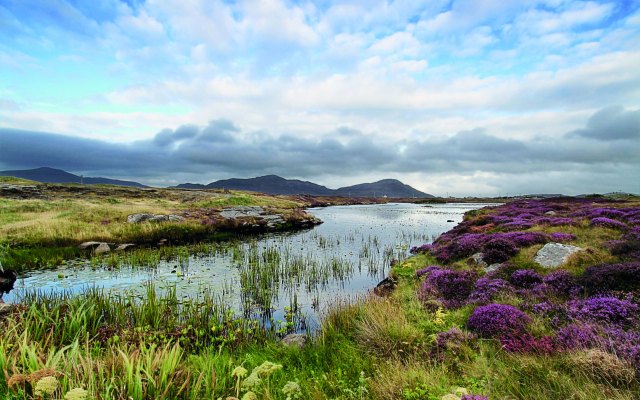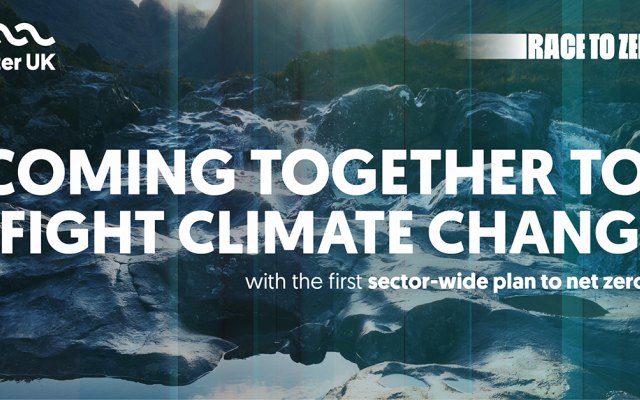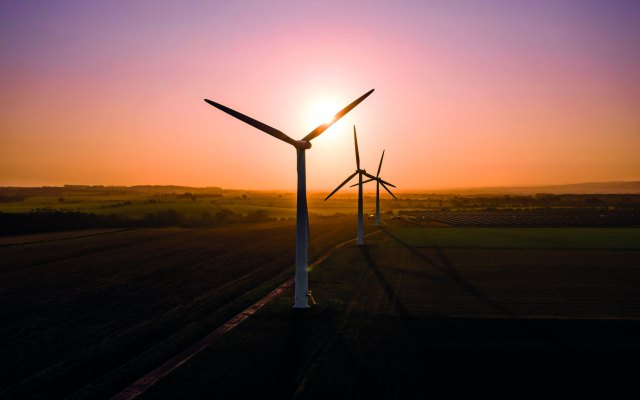News
World Water Day 2021: Global water community challenged to join the Race to Zero
Water companies around the world are being called on to join forces and transform their approach to tackling the carbon emissions associated with supplying water to billions of homes every year.
Launched in support of the UN’s World Water Day, the UK water industry is working as an official partner to the Race to Zero campaign to encourage providers of water and wastewater services to commit to achieving net zero ahead of the COP26 Climate Conference this November.
Led by the UN’s High-Level Climate Champions for Climate Action, the Race to Zero is a global campaign, which aims to rally leadership across businesses, cities, regions and investors for a healthy, resilient, zero carbon recovery. In January this year, the campaign launched its Race to Zero Breakthroughs, setting out the near-term targets that must be reached in the next decade by the nearly 30 sectors that make up the global economy.
For the water sector, the campaign’s ambition is to mobilise major water companies responsible for 20% of global water supply, with the aim of delivering the full decarbonisation of water and wastewater services in 20 countries by 2030.
Nigel Topping, High Level Climate Champion for COP26 said:
"We cannot win the Race to Zero emissions by racing alone. Private sector leaders will need to work in partnership and commit their skills, ingenuity and resources to achieving crucial Breakthroughs - and I'm delighted to see the water industry leading the way."
Water UK was the first industry trade body to be made one of just 20 official partners to the campaign having published the world’s first detailed plan to deliver a net zero water supply for customers by 2030.
Christine McGourty, Water UK Chief Executive said:
“All eyes are on the UK as we prepare to host this year’s COP summit so we're incredibly proud to be playing our part and mobilising water companies around the world on the Race to Zero.
“We don’t have all the answers, but we are committed to sharing our learnings with the global water community, and with other sectors, as they embark on their own net zero journeys.”
Global water utilities are currently responsible for almost 2% of greenhouse gas emissions, a figure that is set to more than double by 2040 as growing demand for ever more scarce water supplies drives reliance on energy-intensive sources of water supply such as desalination, large water transfers and more treatment. It is predicted that demand for water worldwide will exceed sustainable supply by 40% by 2030.
United Utilities has been confirmed as the latest UK water company to join the campaign alongside Anglian Water and Severn Trent.
Chris Matthews, Head of Sustainability at United Utilities said:
“Water companies, more than any other industry, are on the frontline of climate change. Every year we see the evidence of changing weather patterns with more frequent periods of drought, hot weather and extremes of heavy rainfall and flooding.
“It is absolutely right that we take the lead when it comes to cutting our own carbon emissions. But we can’t do this alone, and we encourage water companies around the world to work in partnership with other stakeholders in the water cycle to maximise our impact on this global challenge. Together we can innovate and develop the nature-based infrastructure we need to improve our environment at a cost that society can afford.”
To find out more about the Race to Zero and register your interest in joining the campaign, go to www.water.org.uk/racetozero
ENDS
Notes to editors:
For more information contact:
Emily Highmore-Talbot on [email protected] or +44 (0) 7557 614936
Steven Harry on [email protected] or +44 (0) 7435 926960
About Race to Zero
- The Race to Zero is the largest global alliance of credible commitments by non-state actors to achieving net zero emissions as soon as possible, and by 2050 at the latest.
- Representing over 7% of global emissions and over 12% of the global economy, the campaign was launched by the UN High Level Climate Champions Nigel Topping and Gonzalo Munoz on World Environment Day 2020.
- Since then, net zero commitments have more than doubled, and the campaign now represents over 1,600 companies, 85 of the world’s largest investors, 471 cities, 23 regions and 569 universities.
- All members must fulfil stringent minimum criteria which includes pledging to halve emissions by 2030 in line with science and reach net zero emissions by 2050 at the latest, implement immediate near-term climate actions, and report annually on progress.
- Other water companies to have joined the Race to Zero are: Aguas Andinas, Suez, Pura Somos Agua, Epal, South East Water, Yara Valley Water, and Proyecta Agua Segura.
About Water UK and the Net Zero 2030 Routemap
- Water UK represents all water companies in England, Wales, Scotland and Northern Ireland.
- The UK water industry was the first sector anywhere in the world to publish a comprehensive plan to achieve net zero on an industry-wide basis, having almost halved operational emissions since 2011.
- Designed to provide water companies with a framework on which to build their own net zero action plans, the Net Zero 2030 Routemap highlights a variety of technologies and initiatives that will be needed to unlock a net zero water supply for customers.
- The Routemap identifies a variety of technologies and initiatives that may be needed including:
- The production of biomethane from sewage waste, allowing green gas to be injected into the grid to heat up to 150,000 homes and/or for use as an alternative fuel for transport
- The development of up to 3GW of new solar and wind generation capacity – enough power to meet 80% of the sector’s electricity demands
- The restoration of 20,000 hectares of owned peatland and grassland, and planting of 11 million trees
- The electrification of 100% of passenger vehicles and transition of 80% of commercial vehicles (LGVs and HGVs) to alternative fuels.
- It is estimated that water companies in the UK alone will prevent the emission of 10 million tonnes of greenhouse gases by reaching net zero two decades earlier than the UK Government’s legally binding target for 2050.
About the global water industry
- Water utilities emit the same amount of GHG emissions as shipping (<2%). This is forecast to more than double by 2040 as growing demand for ever more scarce water supplies drives reliance on energy-intensive sources of water supply such as desalination, large water transfers and more treatment. Water demand is forecast to exceed sustainable supply by 40% by 2030. Today, 85% of wastewater is leaving sites, homes and farms untreated.
- Water utilities play an essential role in building a resilient future. For example, the 50 largest utilities supply drinking water for more than 1 billion people. Water is also an essential ingredient in the production of green hydrogen.
- There is significant potential for energy savings in the sector if all available energy efficiency, land restoration and energy recovery opportunities are exploited. Wastewater, for example, contains significant amounts of embedded energy that, if harnessed, could cover more than half of the electricity needs of municipal wastewater utilities.







